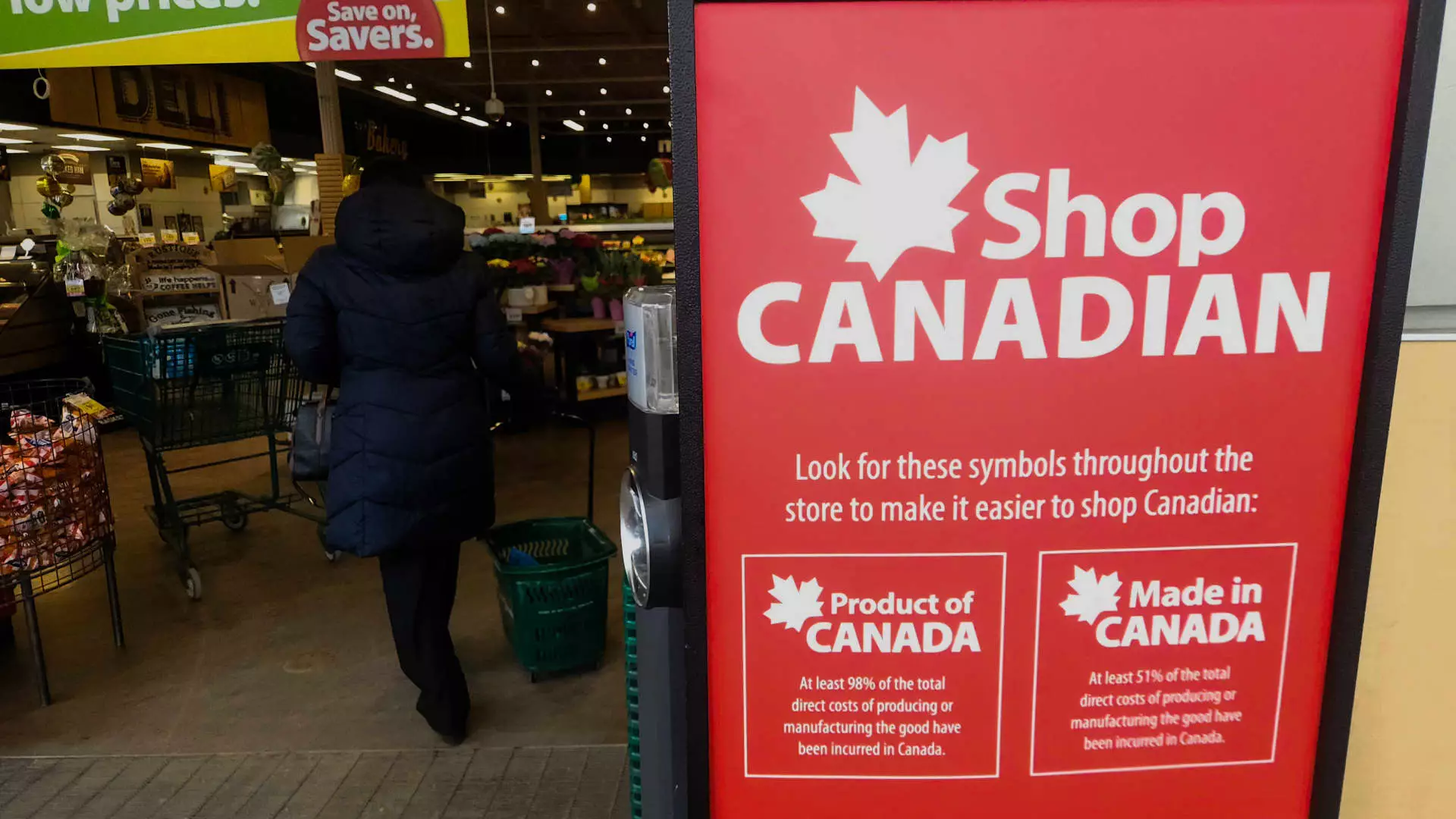The imposition of tariffs by the Trump administration between the United States and Canada has sent shockwaves through the economic and social fabric of North America. Presenting tariffs as tools for rebalancing trade, President Trump overlooks the significant erosion of trust between nations that have historically collaborated for mutual benefit. From the flight of manufacturing jobs to the rise of isolationist policies, it’s crucial to weigh the human cost against the political rhetoric. The statistics alone—$762.1 billion in goods traded as of 2024—tell a compelling story, yet they fail to capture the emotional strain these economic policies impose on small businesses and consumers alike.
What many fail to grasp is that these tariffs are not merely financial impositions but emotional wounds inflicted on a shared history of cooperation. The longstanding trade relationship between the U.S. and Canada has faults, yes, but it has also been fortified by generations of interdependence. Small businesses on both sides of the border are now forced to deal with newfound hostilities, leaving them to grapple with not only rising costs but also identity crises that these changes bring.
Symbolic Acts of Resistance
In the midst of tariff-induced chaos, Canadian small businesses are fighting back in poignant ways that extend beyond the economics of trade. For instance, the Balzac’s Coffee Roasters chain has pivoted in response to these tensions, renaming their beloved Americano to the “Canadiano,” a move that is as much about branding as it is about national pride. Similarly, the Independent Grocers have adopted a maple leaf insignia to promote local products, signaling to consumers that they should embrace Canadian-made goods during this turbulent time.
The emotional resonance of these actions cannot be understated. These symbolic gestures cultivate a sense of community and unity amongst Canadians who feel overlooked and betrayed by U.S. policy. They serve as a reminder that, despite the rift, there is a strong Canadian identity that can weather these turbulent waters. Yet, the question remains whether this newfound sense of nationalism can continue to grow, or if it will backfire by fostering an isolationist mentality.
Lost Trust: A Long-term Impediment
Corinne Pohlmann of the Canadian Federation of Independent Business paints a bleak picture of the fractured relationship between U.S. and Canadian businesses. The statistics from their surveys reveal troubling insights: nearly half of the members are at a loss for how to navigate these trade complexities, while more than half believe the U.S. is no longer a reliable trade partner. Pahlmann’s assertion that “for a lot of Canadians, it felt like a betrayal” resonates deeply with both consumers and entrepreneurs, raising serious alarms about the future of transnational commerce.
The intricacies of trade contracts, renegotiation, and the psychological toll of uncertainty are by-products of tariffs that go understated. Anticipating the unpredictable swings of U.S. policy has a cascading effect that reverberates through partnerships vital for small business operations. As businesses begin to pivot away from familiar partners, we must consider the long-standing implications of broken agreements and shattered trust—features of a relationship that once stood resilient against global turbulence.
The Impact on Soft Power
Beyond the immediate economic repercussions, the soft power of the United States may face dire ramifications. Historically viewed as a nexus of culture, innovation, and collaboration, America’s standing may wither if it continues down the path of economic coercion. Former Secretary of State Antony Blinken articulates a poignant concern: the deteriorating influence of American markets not only jeopardizes U.S. interests but may also give rise to nations like China, who are eager to step into the power vacuum. America’s approach to geopolitical relationships affects more than just trade; it defines its global image.
A fractured relationship means lost opportunities for diplomatic conversations, cultural exchanges, and mutual innovations that could benefit both nations. Is a brief financial gain worth the monumental loss of what once made the U.S. a compelling partner in labor, culture, and trade? These tariffs threaten to undermine future collaborations that could have, even as equally, bolstered both economies amid international competition.
Ready for Rebuilding? Or Are We Stuck?
In the face of these mounting issues, the question lingers: even if tariffs are eased in the future, will Canadian businesses ever feel secure enough to mend the fences with U.S. partners? The damage incurred through economic brinkmanship may last for decades, and voices like Pohlmann’s signal a difficult truth—rebuilding trust is not simply a matter of policy; it is rooted in human relationships forged over time. The road ahead may be disheartening, with the shadow of tariffs casting doubt over future collaborations.

